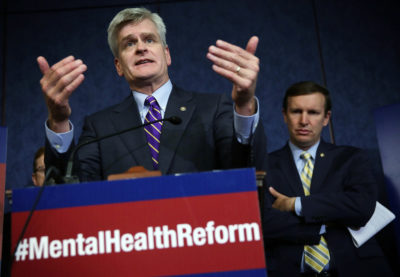 This is James Mark Rippee. He has lived on the streets of Vacaville, California, for fifteen years. He has schizophrenia. Thirty-five years ago, Mark Rippee suffered a motorcycle accident that left him blind, with head trauma, brain loss, and a shattered right leg that is kept in place with a metal rod. He has endured more than sixty surgeries. He is beaten and robbed regularly. (Photo courtesy of Author Ron Powers)
This is James Mark Rippee. He has lived on the streets of Vacaville, California, for fifteen years. He has schizophrenia. Thirty-five years ago, Mark Rippee suffered a motorcycle accident that left him blind, with head trauma, brain loss, and a shattered right leg that is kept in place with a metal rod. He has endured more than sixty surgeries. He is beaten and robbed regularly. (Photo courtesy of Author Ron Powers)
(6-13-22) Guest post today by Linda Rippee Privatte.
WHAT DO YOU CALL ME?
I have been a caregiver on the streets of my hometown of Vacaville, California, to my brother, Mark, who is disabled, blind and has a serious brain disorder with anosognosia (lack of insight). He has been left untreated by the system and homeless for 14 years now.
Lately I have been wondering what title I would be given. That is if our U.S. mental health system even acknowledged and valued the family members who go to the streets to care for their homeless untreated seriously mentally ill (SMI/SBD) loved ones?
I have thought long and hard about the many things I try to be to my brother. Treatment will never be in his reach while the sickness in his brain tells him to say “no” to all offers of help. Lack of insight further complicates care given out on the streets.
I take him water, food and clothing, and each time he has nothing with him again. I show him love and human kindness. I remind him about family memories and make him laugh. I hold him when he is sobbing with delusions. I try to calm him when he is raging in psychosis. I am his substitute for an In-Home Supportive Services Caregiver, nurse, therapist, and social worker.
My responsibility goes even further as I am also expected to answer to my community about their expectations of removing my brother from their streets all the while I am out on those streets caring for him.
Rather than reform HIPAA, LPS, and mental health laws, mental health professionals do not want to acknowledge that they intentionally send the SMI/SBD to U.S. streets. We have advocated for my brother, Mark, unsuccessfully for 34 years due to California legal blockades. He has not had mental health treatment or services in more than 3 decades. The sad truth is that there is no true mental health system in the United States for those with serious brain disorders.
Rather than acknowledge this, mental health professionals and legislators will blame and shame the families.
Through HIPAA, they will blindfold, silence, and handcuff our hands, and still expect us to do the heavy lifting for them. Our family has been my brother’s mental health care system. I am his lifeline. If a loved one of yours develops a serious brain disorder you will become their lifeline too. If the title has not yet been claimed… I will boldly do so now.
I am an American Curbside Caregiver, and I am not the only one!







